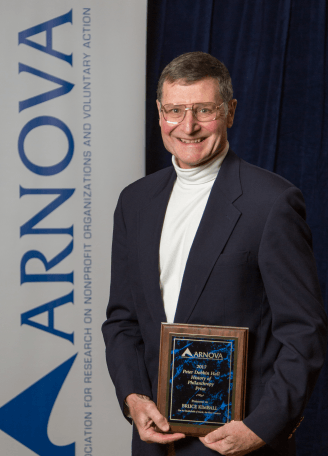The Program would like to congratulate 2013 doctoral graduate, Ben Johnson, on his promotion to Associate Professor at Utah Valley University! We wish you continued success as you move forward in your new position!
Professor Jackie Blount Earns OSU’s Highest Award for Teaching
ESPHE’s very own Jackie Blound has earned Ohio State’s Alumni Award for Distinguished Teaching, one of only ten recipients in 2019. Blount was primarily nominated by doctoral student Spencer J. Smith, who was “blown away by Professor Blount’s commitment to her students.
Jackie will be honored at Ohio State’s Fall football game in front of over 100,000 Buckeye fans.
Read more about her award here.
Graduate Profile: Sam Rocha, PhD, 2010
This month, the Department would like to profile the accomplishments of Sam Rocha, who earned his PhD after submitting his dissertation, “Education, Study, and the Person,” which was awarded the Loadman Dissertation Award from the Department of Educational Studies at The Ohio State University. Dr. Rocha is now a full-time faculty member at the University of British Columbia.
Read more about Dr. Rocha, his accomplishments, and his thoughts about the program here.
Faculty Member Bruce Kimball Receives History Prize for Publication
Bruce Kimball recently received the Peter Dobkin Hall History of Philanthropy Prize from the Association for Research on Non-profit Organizations and Voluntary Action, for his book, On the Battlefield of Merit: Harvard Law School, the First Century (Harvard University Press 2015), co-authored with Daniel R. Coquillette.
The award citation stated that the book provides “a persuasive, balanced, incisive account of the ways Harvard Law School reflected and reinforced the racial, gender, and religious prejudices that long narrowed access to competition for the prizes of American life. It documents the inadequacy of the school’s intellectual quality at several points, and the limits of the quality of the education it offered….On the Battlefield of Merit also pays consistent, close, and thoughtful attention to the question of money, assessing the relative significance of donors…, of students and their parents, or endowments, and of arrangements for paying teachers–or not paying them.”
Graduate Profile: Sam Akulli, PhD, 2018
This month, the department would like to profile Sam Akulli, PhD, who earned his doctorate in 2018. His dissertation, entitled, “Education and the Individual: An Exploration of Enver Hoxha’s Philosophy of Education,” explores the characteristics and components of the idea of the individual in the process of education.
Please see a more detailed list of his accomplishments and thoughts about the program here.
Autumn 2018 Course Announcement: Foundations of Historical Inquiry in Education
ESPHE 8895: Foundations of Historical Inquiry in Education
Couse Number: 34010 | Tuesdays, 7:05pm to 9:48pm, PAES Rm 105 | Prerequisites: None
While we can all be fairy sure there was a “past,” how can we understand the myriad ways in which it can inform us about our present? Is history, indeed, doomed to repeat it? If one fails to learn from it, will they really echo it? Is true knowledge of history possible? Is there such a thing as “good” and “bad” history? And, finally, what constitutes evidence of history and how are those pieces of evidence analyzed and compiled in order to tell us what, if anything,“was?”
This course is designed to answer these questions and so much more, especially as they relate to educational history! Not only will a student who completes this course have a better understanding of what the academic study of history entails, but will also have a theoretical foundation to better understand how to interpret histories for themselves. Also, students will receive instruction on how to examine sources of various kinds for themselves (including textual/documentation and object/physical) and produce their own historical works from start to finish! Finally, the instructor will help students use historical analysis to better understand, and perhaps change, modern education.
Description:
This graduate‐level seminar is designed to provide students with an introduction in the use of methods to study education from the perspective of a scholarly historian. The course will provide students with a solid grounding in what is commonly called the “historical method” so that they can analyze primary sources created by educators and those interested in education so that they can apply lessons from the past into their understandings of the modern education, and, if they so choose, better understand the production of scholarly documentation that would be seen as well‐considered and
authoritative by scholastic historians.
Students will receive instruction on the development of history as a field and how to parse through its historiographical vastness. Additionally, students will study the analytical frameworks, research methods, writing techniques, and citation techniques employed by historians. Finally, students will be taught how to categorize data and how to write in an organized but efficient and concise manner that will help speed production of their final product while maximizing the readability of their manuscripts. Students will write short, concise, and focused papers (3‐5 pages) that will strengthen lessons learned in class and will participate in in‐ and out‐of‐class projects designed to reinforce course content.
Course Instructor:
Dr. Bruce Arnold, Assistant Professor
Interests: Post-1860s U.S. cultural history and transnational ethnohistory
with interests in Asian American, African American, technological, consumer,
family, and educational histories, as well as the history of technology and computing.

